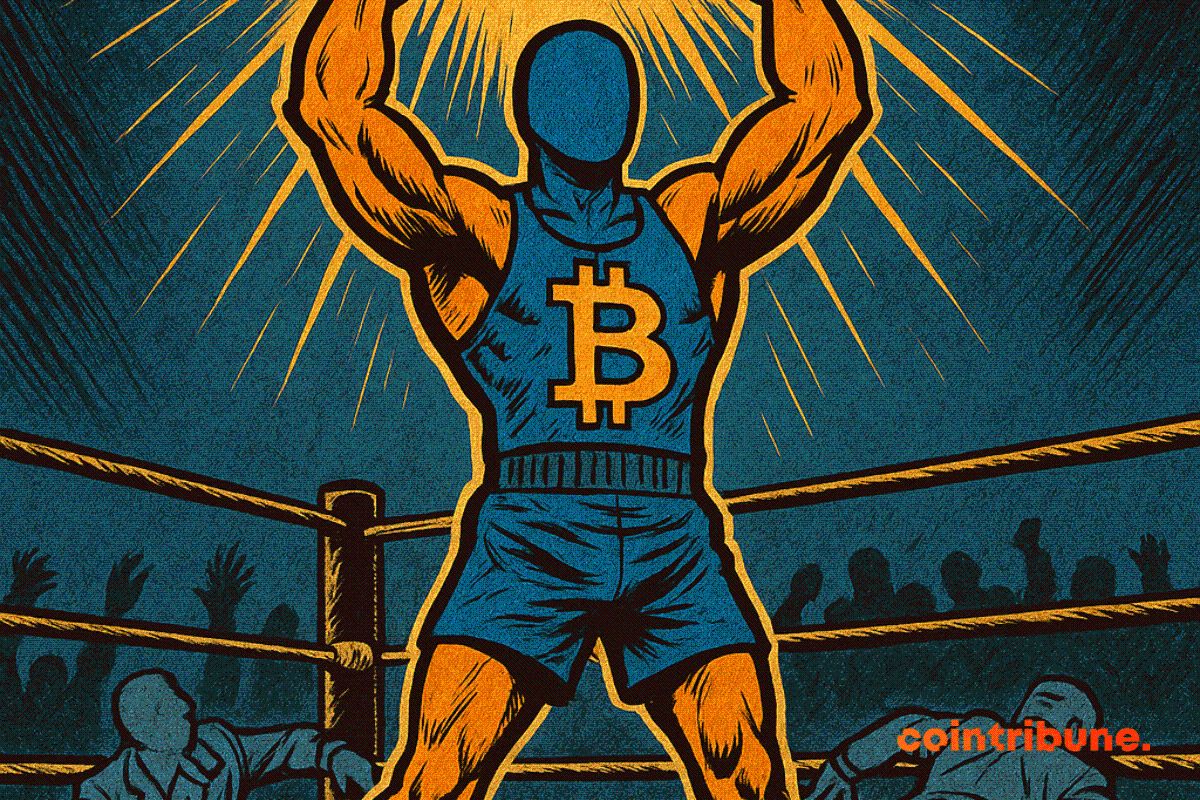How powerful is the U.S. President’s pardon authority?
Through a workaround, the U.S. President could even pardon himself.
Through a workaround, the President of the United States can even pardon himself.
Written by: Gregory Korte, Bloomberg
Translated by: Luffy, Foresight News
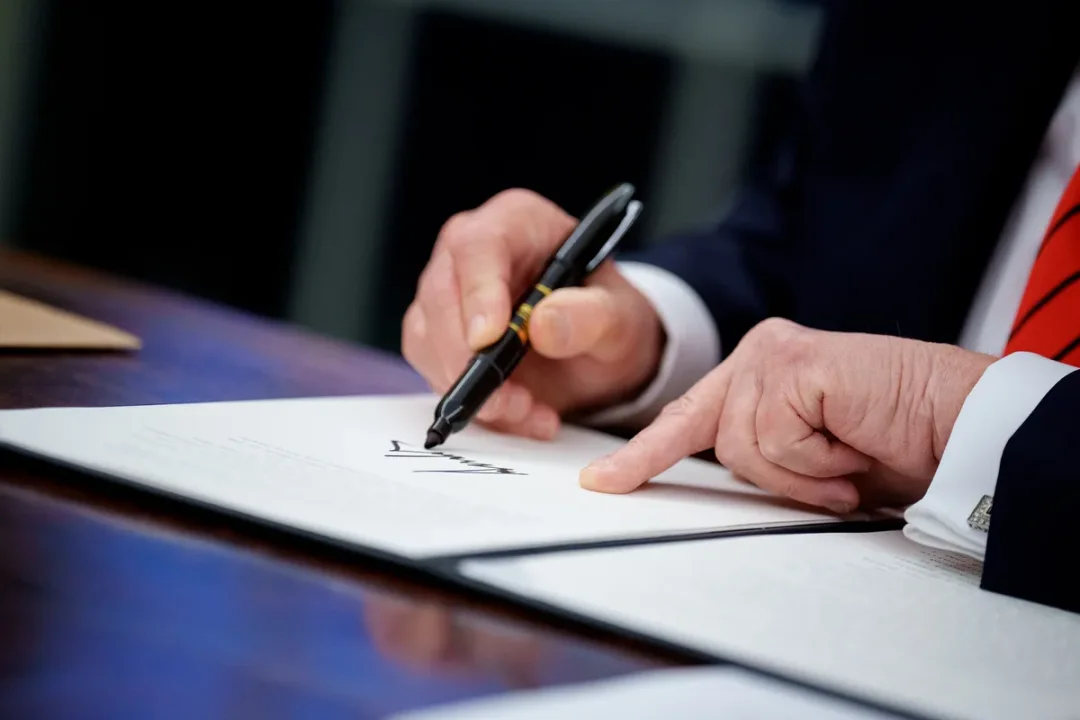
U.S. President Donald Trump signs a series of executive orders in the Oval Office of the White House in Washington, including a pardon
The presidential pardon power is one of the most absolute and most misunderstood clauses in the Constitution. As Alexander Hamilton stated, this power originated from the royal prerogative of mercy of 7th-century English kings. The U.S. Founding Fathers hoped that by granting the president strong pardon powers, they could provide a convenient channel of exemption for those unfortunate enough to be convicted by the judicial system.
Today, this power is as controversial as the person wielding it. On the first day of his second term, President Donald Trump issued a sweeping pardon to those convicted in the January 6, 2021, Capitol riot.
Trump's predecessor, Joe Biden, in the weeks before leaving office, pardoned his son Hunter for tax and gun crimes. He also granted so-called "blanket pardons" to five other family members, citing concerns they might be unfairly prosecuted during Trump's administration; also pardoned were government officials whom Trump had listed as political enemies and threatened to punish.
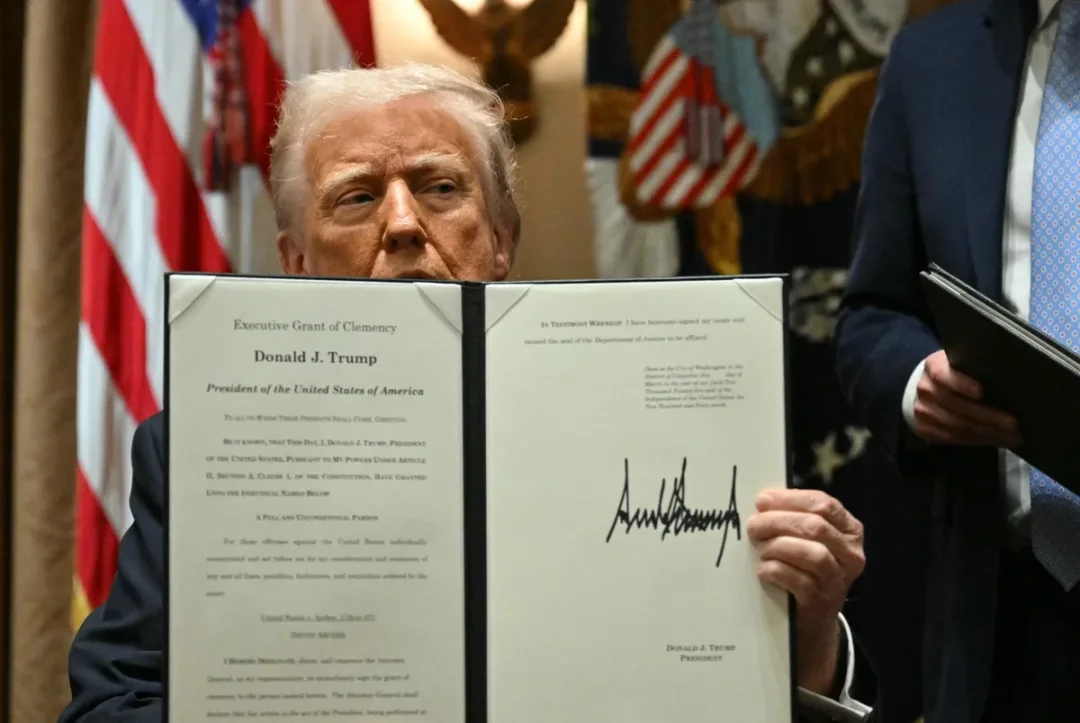
U.S. President Donald Trump delivers remarks after signing a pardon at the White House on March 25
What is a pardon?
A pardon is a legal act of forgiveness granted by the president, governor, or other executive authority. In some U.S. states, governors must exercise this power jointly with a pardon board, but for federal crimes, the pardon power belongs solely to the president.
A pardon does not overturn a conviction—the conviction record remains; nor does it represent a statement on the individual's guilt or innocence. Pardons fall under the president's broader executive clemency powers, which also include the following lesser forms of clemency:
- Commutation: Reduces the sentence but retains all other consequences of the conviction;
- Reprieve: Delays the execution of the sentence;
- Remission of fines: Reduces or eliminates monetary fines.
In modern times, reprieves and remission of fines are rarely used.
How often does the president exercise the pardon power?
Except for two presidents who died in office—William Henry Harrison and James Garfield—all presidents have exercised the pardon power. Since George Washington first pardoned the act of "smuggling rum from Barbados in barrels of less than 50 gallons," presidents have issued nearly 35,000 individual pardons.
In recent decades, the use of this power has declined, with presidents mostly exercising it around holidays or at the end of their terms.
But Biden has been an active pardoner. Before leaving office, he released 1,499 inmates under home confinement, including some convicted of public corruption, commuted 37 death sentences, and shortened the sentences of 2,490 drug offenders, whom he said had been unjustly harshly sentenced.
By the last day of his presidency, Biden had issued 79 pardons and 4,168 commutations, making him the most frequent user of executive clemency in U.S. history. The number of pardons he issued in a single term exceeded the total of the previous seven presidents combined.
Why do presidents exercise the pardon power?
When granting pardons, presidents usually convey their views on justice, mercy, norms, and social customs.
Pardon lists are like a social history of America, with presidents striving to heal old conflicts and reconcile the nation with its more punitive past. Wars, rebellions, Prohibition, the War on Drugs—these events are often followed years or decades later by waves of clemency.
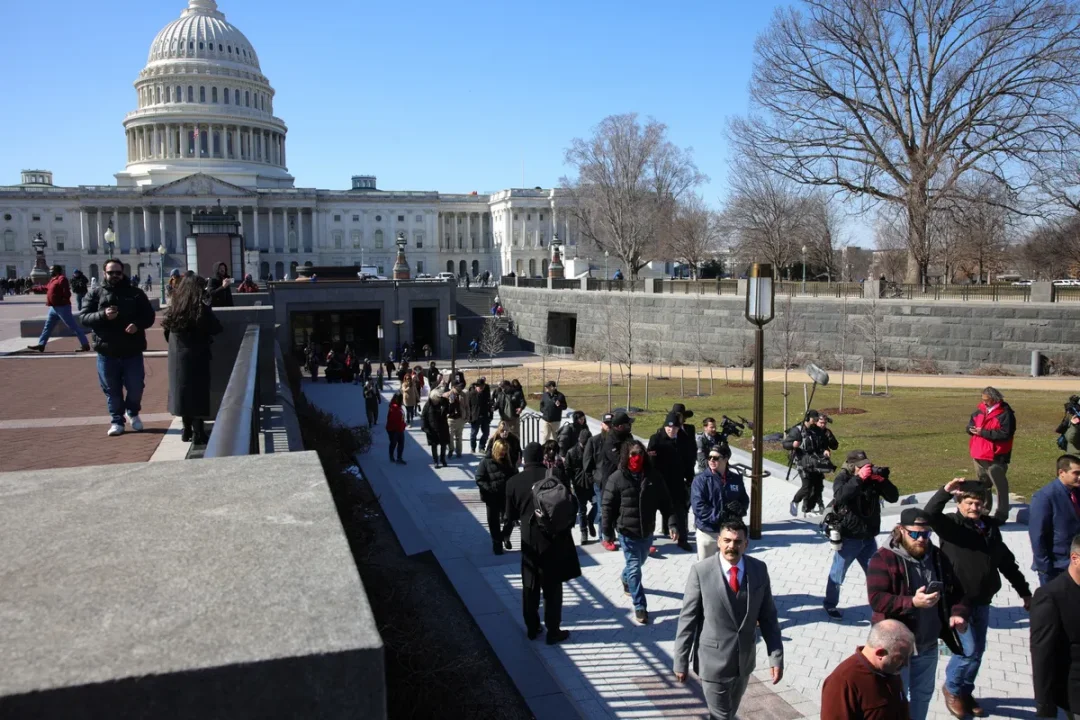
Leaders of the "Proud Boys" and "Oath Keepers" organizations involved in the January 6, 2021, riot at a press conference on Capitol Hill in Washington on February 21
There is clear precedent for Trump’s pardons of Capitol riot participants. In the 1790s, President Washington pardoned ten leaders of the "Whiskey Rebellion," who had been convicted of treason; Presidents Abraham Lincoln and Andrew Johnson pardoned Confederate soldiers, and President Gerald Ford pardoned their general, Robert E. Lee.
Some pardons are considered to have been motivated by self-interest. President Richard Nixon pardoned influential labor leader Jimmy Hoffa, who had been convicted of jury tampering and fraud and later supported Nixon’s re-election campaign; President Bill Clinton pardoned financier Marc Rich, whose wife was a major Clinton campaign donor, and who had been indicted for tax evasion and trading oil with Iran during an embargo; On October 23, Trump pardoned Binance founder Zhao Changpeng, who had been serving a four-month sentence in federal prison for failing to establish effective anti-money laundering mechanisms at the cryptocurrency exchange. Prior to this, Zhao and Binance had become major supporters of the Trump family’s cryptocurrency project, World Liberty Financial.
What are the limits of the pardon power?
The Founding Fathers deliberately minimized conditions when establishing the pardon power. Hamilton wrote that this power should be as free from restraint and hindrance as possible.
The Supreme Court has ruled that since the pardon power is explicitly granted to the president by the Constitution, any limitations (if they exist) must come from the Constitution itself.
In other words, as long as it does not violate other constitutional provisions, a pardon is valid. Such unconstitutional cases are extremely rare: some commentators believe that accepting bribes in exchange for pardons could invalidate a pardon, but this remains unsettled.
The Constitution explicitly sets out two limitations: First, the president can only grant pardons for federal crimes and has no authority over state crimes; second, except in cases of impeachment, the president cannot use the pardon power to obstruct Congress from removing himself or other officials.
Can a presidential pardon be revoked?
Neither Congress nor the courts can overturn a presidential pardon, but if the pardon document has not yet been delivered and accepted by the recipient, the president can revoke the pardon.
In 2008, President George W. Bush pardoned real estate developer Isaac Toussie, who had been convicted of mail fraud. But a day later, after learning that Toussie's father had donated to the Republican Party, Bush rescinded the decision and ordered that the pardon document not be delivered. Since Toussie did not receive the paperwork, the pardon was not effective.
A president can also attempt to revoke undelivered pardons issued by a predecessor. In 1869, President Andrew Johnson granted pardons to three people convicted of fraud, but a few days later, President Ulysses S. Grant took office and recalled the U.S. marshal responsible for delivering the documents, effectively revoking the pardons.
Can the president pardon himself?
Most legal scholars believe not, partly based on the literal meaning of the pardon power. The Constitution states that the president has the power to "grant" pardons, i.e., "give" or "transfer," which implies the pardon must be granted to someone else. In addition, in a 1974 legal memo before Nixon resigned, the Justice Department’s Office of Legal Counsel stated that, based on the fundamental principle that "no one may be a judge in his own case," the president cannot self-pardon. Regardless, President Ford ultimately pardoned Nixon for all crimes he might have committed in the Watergate scandal.
But this issue has never been tested in court, and even scholars who oppose self-pardons admit it remains an open question. However, there is a workaround: the president can temporarily transfer power to the vice president, who, as acting president, can grant the pardon.
Can pardons be granted in advance?
The president cannot grant pardons for crimes not yet committed, as that would amount to a lifetime get-out-of-jail-free card.
But for crimes already committed but not yet prosecuted, the president can issue a pardon. In 1866, the Supreme Court issued a landmark ruling in the "Garland case" (involving a Confederate soldier), holding that the pardon power applies to all offenses defined by law and can be exercised at any time after the crime—whether before, during, or after legal proceedings.
What is a "blanket pardon"?
When granting a pardon, the president does not need to specify the particular offense; such pardons are called "blanket pardons." The most famous example is President Ford’s pardon of Nixon, which covered all crimes he might have committed during his presidency.
Biden’s pardons of family members and officials whom Trump had listed as enemies before leaving office also fall into this category. The pardoned relatives include three siblings and their spouses; the officials include retired General Mark Milley, infectious disease expert Anthony Fauci, and members and staff of the committee that investigated the January 6 Capitol attack and recommended prosecuting Trump.
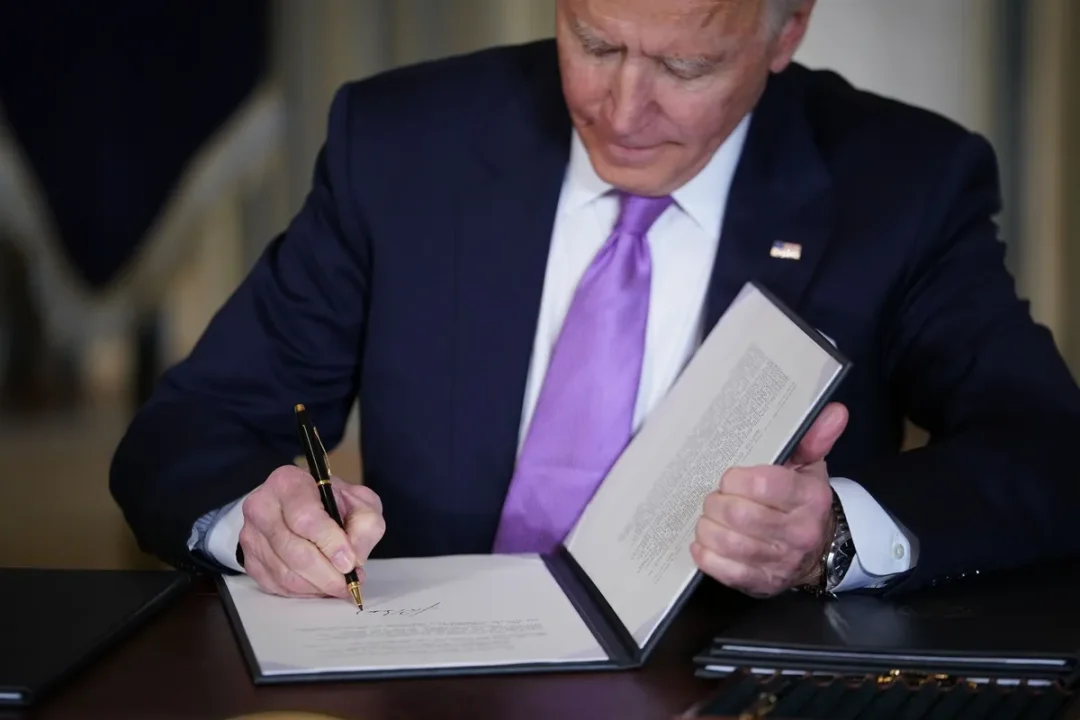
Former U.S. President Joe Biden signs an executive order at the White House
The committee members include former Wyoming Republican Representative Liz Cheney (who helped lead the investigation) and current California Democratic Senator Adam Schiff (who also led Trump’s first impeachment trial). Biden also pardoned Capitol Police and Washington, D.C. Metropolitan Police who testified before the committee.
Biden’s pardon of his son Hunter covers not only his convictions for gun and tax crimes but also any other crimes he may have committed in the previous 11 years.
During his first term, Trump also pardoned several allies, including former political adviser Stephen Bannon and Albert Pirro Jr., the ex-husband of Fox News host Jeanine Pirro.
Does accepting a pardon mean admitting guilt?
No. Presidents often grant pardons to those they believe are innocent or have been treated unfairly. For example, Trump posthumously pardoned boxer Jack Johnson, who was convicted in 1913 for transporting a woman across state lines for immoral purposes—a charge often used as a pretext for racist prosecutions; Biden pardoned military personnel convicted under the now-repealed "military homosexual conduct ban"; in his final acts of clemency, he also pardoned Marcus Garvey, the Black nationalist leader convicted of mail fraud in 1923, whom civil rights activists have long argued was prosecuted for racial reasons.
The widespread belief that "a pardon implies guilt" stems from the Supreme Court’s 1915 decision in "Burdick v. United States," which stated that a pardon carries an imputation of guilt and that accepting a pardon is tantamount to a confession. President Ford kept a copy of this ruling in his wallet as justification for pardoning Nixon.
But later courts have not treated this presumption of guilt as the core of the Burdick decision. The key holding was that a person granted a pardon has the right to refuse it.
Must pardons be in writing?
In February 2024, a federal appeals court ruled: "The answer is undoubtedly no. The plain language of the Constitution imposes no such limitation."
But from a practical and historical perspective, keeping records is safer. In the 2024 decision, the Fourth Circuit Court of Appeals found that Trump’s verbal assurances to former Cleveland Browns running back Jim Brown—"I’ll take care of it," "I want this done"—were not sufficient to release a man serving a life sentence for drug trafficking and murder.
Must the president specify the recipient of a pardon?
No. There have been class pardons in history, granting clemency to all those convicted of a particular offense. For example, President Jimmy Carter granted amnesty to draft dodgers after the Vietnam War, and Biden issued class pardons for marijuana-related offenses. In such cases, those convicted of the specified offense can apply to the Justice Department’s Office of the Pardon Attorney for a certificate to prove they qualify for the pardon.
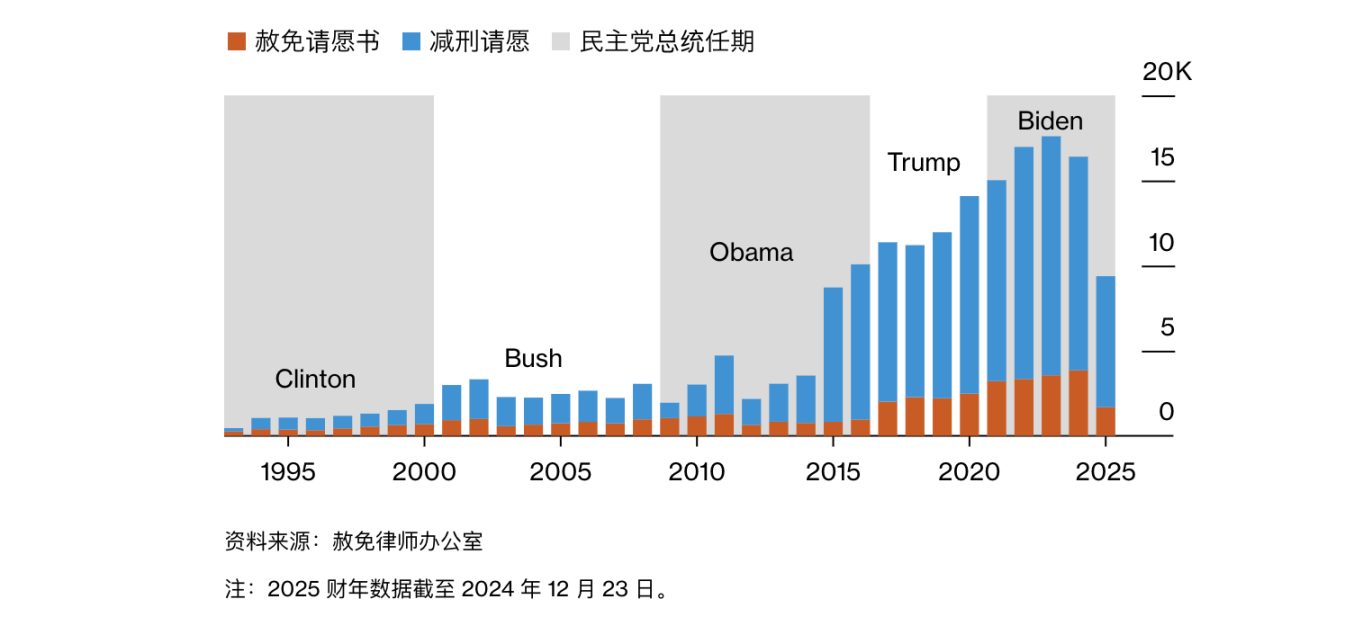
Number of pending presidential pardon applications at the Justice Department’s Office of the Pardon Attorney by fiscal year
How do you obtain a pardon?
There are two procedural paths to obtaining a pardon:
The first is the path followed by President Barack Obama. Applicants must submit a petition to the Office of the Pardon Attorney. The office usually requires applicants to wait five years before applying and does not accept posthumous or misdemeanor pardon applications. After a thorough review (including an FBI background check), the application is forwarded to the Attorney General, the White House Counsel’s Office, and finally the president, who decides whether to approve or deny it.
The second is the path favored by Trump, which is much more relaxed. During his first term, he often took recommendations from celebrities such as Kim Kardashian and Sylvester Stallone, bypassed the waiting period and background checks, and signed pardons at grand ceremonies.
Most presidents use a combination of these two paths, but the most controversial pardons are often granted directly to the president.
One reason for bypassing the bureaucracy is that during Biden’s administration, the backlog of pardon applications reached a historic high, which was only reduced to pre-Trump levels when he approved a batch of applications before leaving office.
Disclaimer: The content of this article solely reflects the author's opinion and does not represent the platform in any capacity. This article is not intended to serve as a reference for making investment decisions.
You may also like
Terra Luna Classic Shakes the Crypto Market with Surprising Developments
In Brief LUNC experienced a significant price decline following Do Kwon's sentencing. The court cited over $40 billion losses as a reason for Do Kwon's penalty. Analysts suggest short-term pressure on LUNC may persist, despite long-term community support.
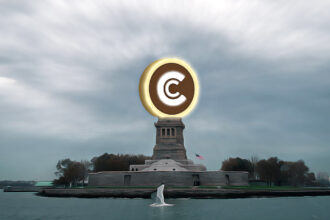
NYDIG: Tokenized Assets Offer Modest Crypto Gains as Growth Depends on Access and Regulation
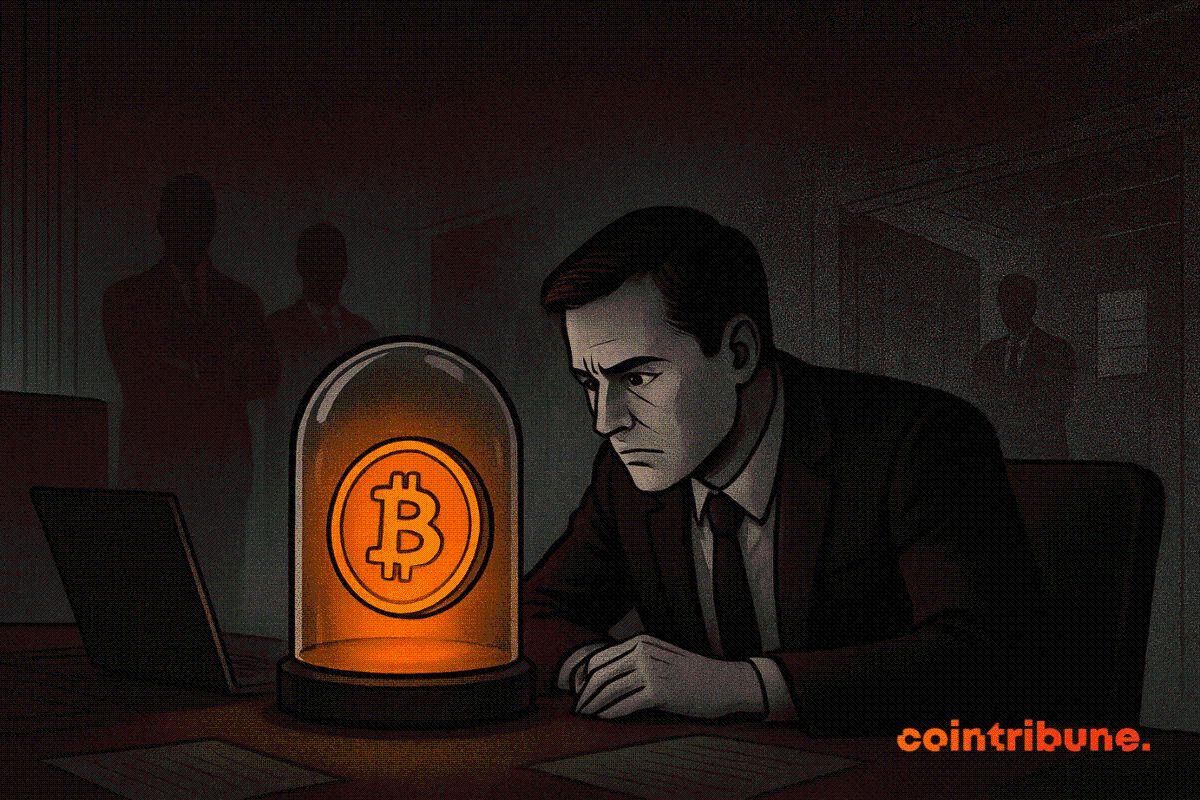
Cardano Investors Split As Market Fatigue Sets In
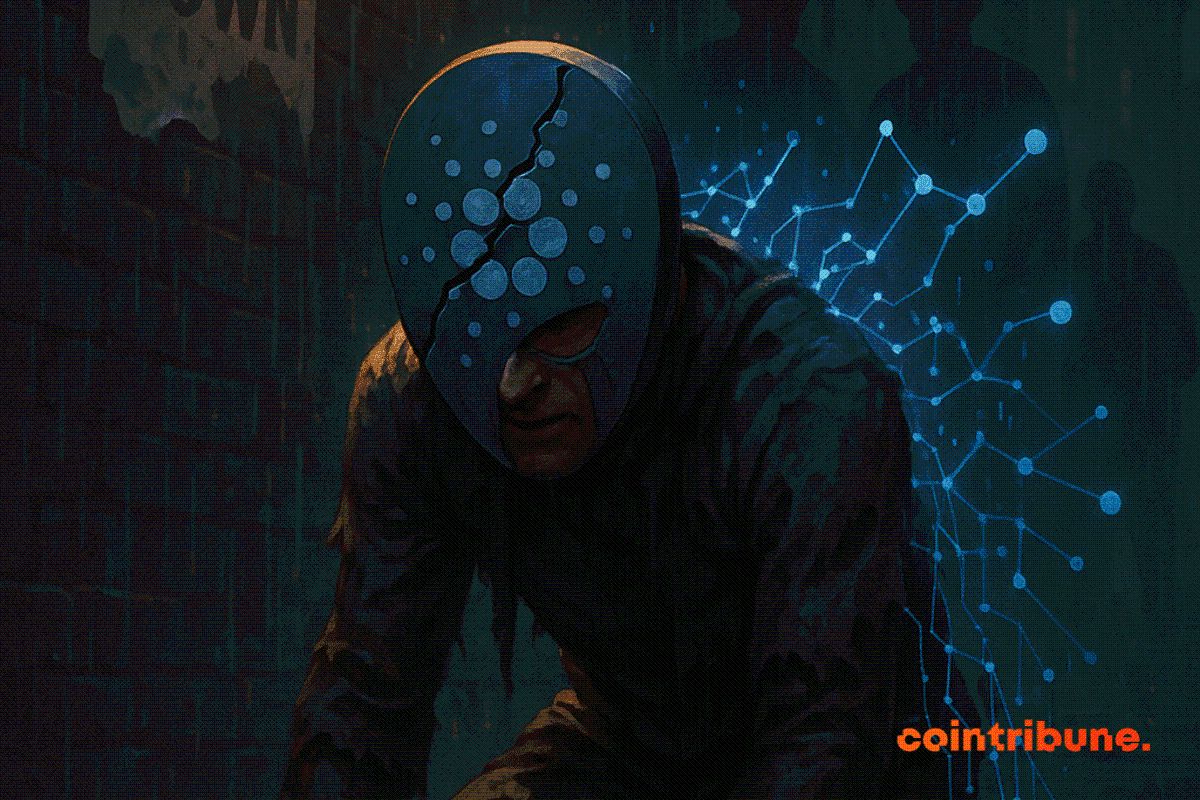
Bitcoin : Strategy escapes the chopping block during the first Nasdaq 100 sorting
